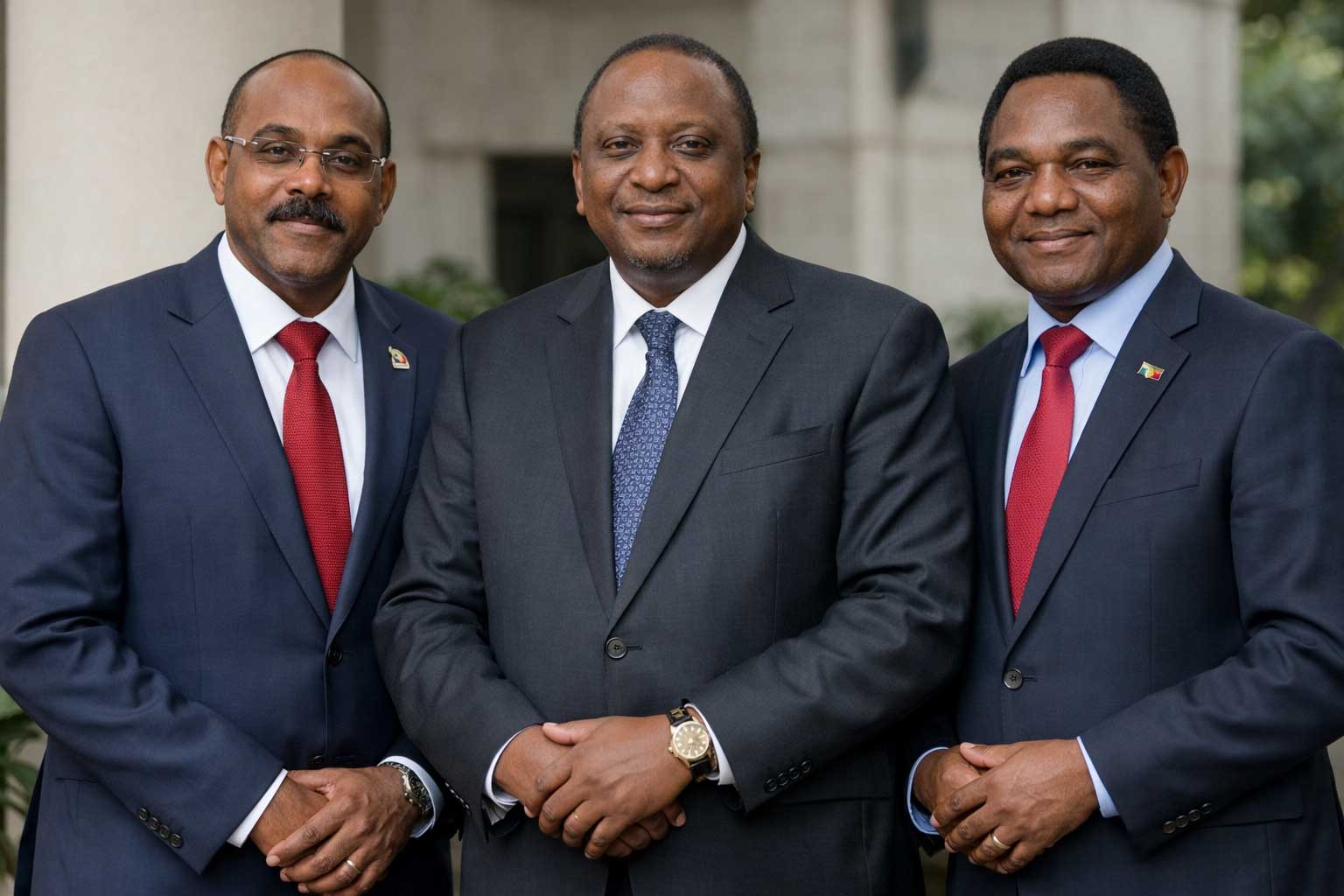A court in Zambia has sentenced two men to two years in prison for attempting to use witchcraft to kill President Hakainde Hichilema.
Zambian Leonard Phiri and Mozambican Jasten Mabulesse Candunde were convicted under the Witchcraft Act after being arrested in December with charms in their possession, including a live chameleon.
It is my considered view that the convicts were not only the enemy of the head of state but were also enemies of all Zambians, magistrate Fine Mayambu said in his ruling.
The case has been closely followed in Zambia, as this was the first time anyone was put on trial for attempting to use witchcraft against a president.
The prosecution alleged that Phiri and Candunde were hired by a fugitive former MP to bewitch Hichilema. Despite their insistence that they were bona fide traditional healers, the court found them guilty on two counts under the Witchcraft Act.
The two accepted ownership of the charms. Phiri further demonstrated that the chameleon's tail, once pricked and used in the ritual, would cause death to occur within five days, Magistrate Mayambu said.
The lawyer for the two men, Agrippa Malando, argued for leniency since they were first-time offenders but faced rejection from the court.
Magistrate Mayambu emphasized that many Zambians believe in witchcraft, despite its lack of scientific proof, and stated the law is meant to protect society from fear and harm caused by those claiming supernatural powers.
In addition to their two-year sentences, the men received six months for possessing charms, but they will serve their sentences concurrently, amounting to two years total from their December 2024 arrest.
Hichilema has previously expressed his disbelief in witchcraft and has not commented on the ongoing case.
Lawyer Dickson Jere noted that the Witchcraft Act, enacted in 1914 during colonial rule, is rarely enforced, primarily aimed at protecting individuals wrongfully accused of witchcraft resulting in mob justice.
The relevance of witchcraft in Zambia continues to spark discussions, notably amid the government's stance on the burial arrangements for the late President Edgar Lungu, leading some to speculate motives involving occult practices, an accusation the government refutes.






















